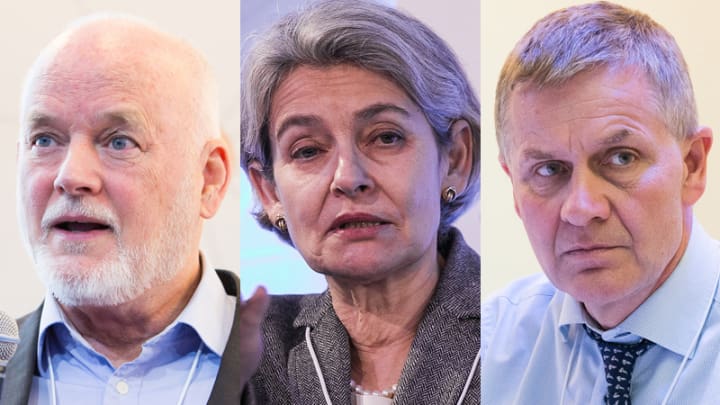
More scientific research is needed on the world’s oceans — but enough is understood to know that immediate action is necessary to fight the “gamut of problems” circulating under the sea and on its shores, United Nations leaders said Tuesday afternoon.
U.N. General Assembly President Peter Thomson, UNESCO Director-General Irina Bokova and Erik Solheim, the recently appointed executive director of the U.N. Environment Programme, jointly called for a defense of climate science on the second day of the U.N. Ocean Conference during a panel discussion.
“Do we need more science? Yes, for sure,” Solheim told media, U.N. colleagues and conference participants at the U.N. headquarters. “Do we have enough science to act? Again, yes, for sure. We have more than enough science to act on plastic and enough science to act on climate. We need better, and more precise [research] and should encourage that. But it is also time now for politicians and world leaders to stand and defend science.”
Only a small percentage of the world’s oceans — almost all of which exist outside of marine protected areas — have been studied, Bokova explained. There could be one million species that have yet to be discovered.
Fish, finance and Trump: What to expect at the UN Ocean Conference
The first United Nations-hosted conference on the world's oceans is expected to convene more than 5,000 participants to attend panel discussions and commit action on ocean and marine sustainability.
“We all know oceans are transboundary and we need international cooperation,” she said. “Not a single scientist or institution can invest so much to bring the right solutions. The study of the ocean is interdisciplinary. It’s important to invest if you want the right answers.”
UNESCO is set to present its first global analysis of oceanographic sciences at the U.N. later this week.
But much of the basic, potentially irreversible damage oceans are experiencing is clear. Eight million tons of plastic are going into the ocean every year, and this number is expected to rise exponentially in the years to come. An estimated $23 billion worth of fish are being taken out of the water, stolen, as a result of illegal fishing practices. And Arctic sea ice is thawing rapidly, meaning that the Arctic could become ice free during its summers as early as 2040.
Thomson, the U.N. ambassador from Fiji, drew from his personal experiences as a Pacific Islander to reflect on whether the Trump administration’s rejection of climate change science, and, more recently, the Paris Agreement, is a “slap in the face,” as moderator David Eades, of the BBC, suggested during the discussion.
“We know with warming temperatures that the air expands and the sea level is going up, so, basic science, we know in the Pacific sea levels are rising,” he said. “The science has to go to, ‘what are we going to do about that’ in countries where they have lived for thousands of years and developed their own cultures, developed their own languages and then be told, ‘sorry there is no more country left.’ We are all in favor of good science, but science has to move on to the next issue, and that is, ‘what do we do about it?’”
Read more international development news online, and subscribe to The Development Newswire to receive the latest from the world’s leading donors and decision-makers — emailed to you free every business day.




